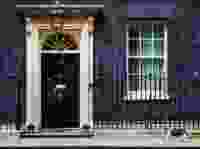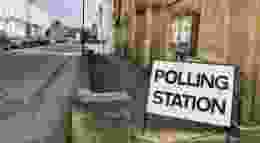
Time for the Government to keep its nerve
Raising taxes on businesses is a recipe for killing many off altogether. At a time when employment and prosperity are going to be key concerns, it is difficult to conceive of policies less likely to help the country get through the coronavirus downturn. Raising taxes usually has the slightly counter-intuitive effect of reducing the tax take, argues John Baron MP
The Government has taken a battering. The coronavirus pandemic has strained ministers, officials and our system of government close to breaking point, and it should not be forgotten that the Prime Minister himself stared death in the face just a few months ago. Nor has the summer been restful and restorative as usual – the virus does not take holidays and the avoidable mess over GCSEs and A-Levels further sapped morale, both in Government and on the back benches.
There is a certain logic that u-turns underline the strength of a government's position, given it can weather a screeching turn and still stay afloat. If this is right, then this is a most buoyant government indeed. To a large extent u-turns also make good sense – there is no worth in continuing with a bad policy purely for the sake of saving face – but it would be preferable if bad policies were not implemented in the first place.
In the first months of this pandemic, the public seemed inclined to mostly give the Government the benefit of the doubt. Mistakes and shortcomings were mostly tolerated as people understood the exceptional circumstances, and doubted whether any other government would have done any better. However this will not always hold true, and the Government needs to get more of a grip on matters, find some steel and hold its nerve on a number of fronts.
One relates to the public finances. Whether it is ministers or officials engaged in kite-flying exercises, there are certainly plenty of suggestions in the media that some form of tax rises are being considered. This would be a bad idea on many fronts, as Conservatives usually readily understand.
Raising taxes on businesses, many of which have already taken a hammering during the pandemic, is a recipe for killing many off altogether and making unemployment even worse. Hiking taxes on pension contributions will discourage people from making sensible provisions for their retirement, ultimately increasing costs to the public finances. At a time when employment and prosperity are going to be key concerns, it is difficult to conceive of policies less likely to help the country get through the coronavirus downturn.
In any case, as I have outlined many times in this column, raising taxes usually has the slightly counter-intuitive effect of reducing the tax take – and vice versa. It is good to hear the DWP Secretary of State making these points to her colleagues, and gives hope that the Government will not go down this wrong path.
If money is required to respond to the coronavirus outbreak, then there is scope to find these funds from other areas. Analysis from the Taxpayers' Alliance suggests that tackling the web of quangos and related public bodies could save a significant proportion of the £206 billion these bodies presently cost in total. Every incoming government boasts that it will conduct a 'bonfire of the quangos'. Now is surely the time to finally grasp the nettle and do this, and if the Government is looking for a volunteer to head up this effort then I would be pleased to offer my services.
Another possible source of funds would be to cancel High Speed Two, which is a white elephant on a vast scale and a project rendered redundant by advances in telecommunications which allow people to work on trains as productively as at the office. The Oakervee Review, which reported in February, stated that £9 billion has so far been expended, but that between £2 – 3 billion of this should be recoverable through land and property sales. Taking this along with the costs of winding up the project, this could result in savings of around £80 billion against a total projected budget of £87.7 billion.
On another front, to reduce the number of confidence-sapping u-turns, the Government must take more time in formulating policies and analysing how they are communicated. Whilst welcoming the Government's promises to implement 'world-class' and 'world-beating' solutions to help deal with the coronavirus, there is a value in under-promising and over-delivering.
Taking more time to interrogate advice and consider policies from all angles, including how they will be perceived by the public, will help reduce the number of u-turns by identifying problems before they happen. It will also greatly mend fences with back benchers, who have had a summer of selling difficult polices to constituents only to have the rug pulled out from under them.
The one area where the Government so far appear to have held admirably firm is in the EU trade negotiations, despite an intransigent EU which does not seem to comprehend that the UK is an independent country like any other. No country would, or should, agree to dynamic alignment with a trade bloc's standards and regulations with no say over them. The EU would never agree to implement all future decisions of British courts, regulators and laws from the Westminster Parliament. A trade deal with the EU is preferable, but if signed at any price then it ceases to be a good deal. To paraphrase a former Prime Minister, no deal remains better than a bad deal.
It also seems the Government is making good progress with negotiating trade deals with other countries, with positive noises coming from the negotiations with both Japan and Australia in particular. The US trade negotiations have understandably gone quiet, given the looming election, but there are reasons to believe this agreement is also on course. The expected appointment of the former Australian Prime Minister to a position at the Board of Trade is a good move – Mr Abbott famously agreed trade deals with South Korea, Japan and China in short order – but, to return to my theme, the Government must not be knocked off course by Labour and other activist voices who seek to rule out the former elected Prime Minister of one of our closest allies from serving in this role.
In taking stock ahead of a potentially difficult autumn and winter, the Prime Minister should be unafraid to mix up his ministerial team where necessary. Politics is a harsh world, and the coronavirus has exposed some ministers at not being at the top of their game. It would also demonstrate to the country that the Government is on top of the challenges it faces.
At the same time, the Prime Minister should also give some thought to being more positive in his public statements, to give the British people both reassurance and confidence. Dramatic talk of sudden local lockdowns, no-notice quarantines and the inevitability of a second wave are understandable, but they should not mask the fact that in most areas the levels of the virus are low, our hospitals are largely empty of covid-19 patients and that a number of treatments discovered since the beginning of the pandemic mean that patients have significantly better chances of surviving the coronavirus. These too need to be clearly communicated.
Above all, Conservatives, whether in Parliament, in Council chambers or at home, should not lose heart. The whole world has been on a harsh learning curve with the coronavirus, a successful negotiation with the EU may materialise as suddenly as last October's deal, and the next General Election is still over four years away. Indications that the Labour Party are level-pegging should be taken with a pinch of salt – after all, Ed Miliband led David Cameron in almost every poll up until the one that really mattered.

John Baron is the former Conservative MP for Basildon and Billericay and a former Shadow Health Minister.





